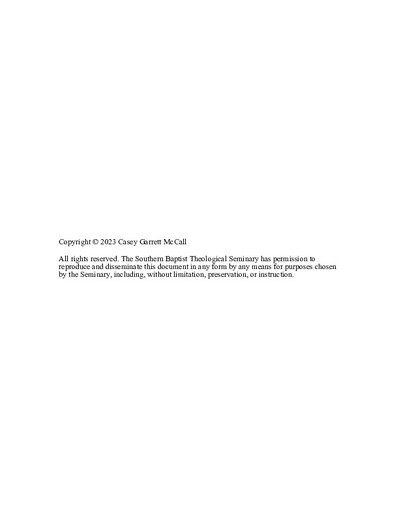Jefferson's Baptists: Evangelical Partisanship in the Early American Republic, 1800-1830
Subject
Jefferson, Thomas, 1743-1826Baptists--United States--History--19th century
United States--Church history--19th century
Freedom of religion--United States--History--19th century
Abstract
After the Revolution, opportunistic settlers from Virginia began streaming over the Allegheny Mountains to settle frontier lands to the south and west. Numbered among them, Baptists came in droves, spreading not only the evangelical gospel, but also Thomas Jefferson’s unique brand of Republican politics. This dissertation explores how Baptists in the trans-Appalachian West synthesized their evangelical convictions with their own vision of Jeffersonian Republicanism between the years 1800 and 1830. This synthesis impacted politics as Jefferson’s party came to dominate the region, but it also impacted Baptist churches in profound ways. After joining with Jefferson’s party during their shared fight to secure religious liberty in the infant nation, Baptists increasingly embodied Jeffersonian ideals through ecclesial practices that prioritized individual liberty and opposed any semblance of authoritarianism. However, the same partisan loyalty that aided them in coming to dominate a region left their churches and associations vulnerable to emerging religious movements that better embodied those same Jeffersonian ideals. This dissertation explores the Jeffersonian-Baptist synthesis in the context of the fight for religious liberty, Baptist ecclesiology, the debate over slavery, the anti-mission controversy, and the emergence of Alexander Campbell’s Restoration Movement.

